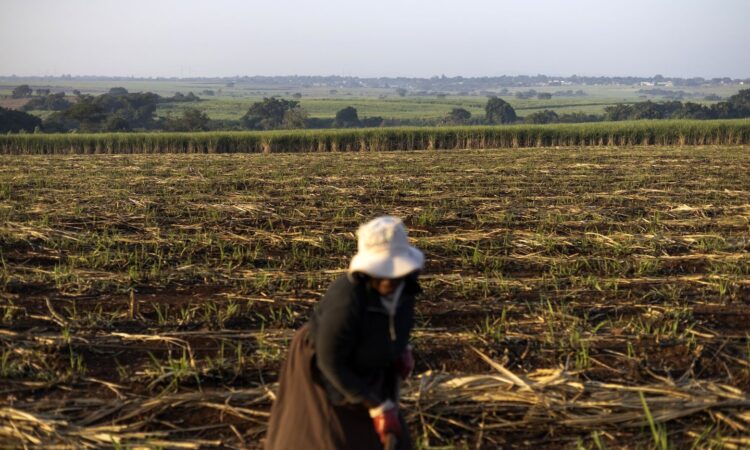
“The world deserves and expects its two largest economies to work together on these global problems and help find solutions,” she told a news conference Saturday. US Climate Envoy John Kerry will travel to China for talks later this month.
Those needn’t just be empty words. There’s one weird trick that could help fix both debt and climate issues, and major economies have been edging toward it in recent years.
The heart of the problem is money. The energy transition will be built on trillions of dollars of investment, but one of the reasons that poor countries remain poor is that global funds flow overwhelmingly to nations that are already rich. The world as a whole is well on the way to assigning the capital needed to hit net zero. However, some 84% of the $1.6 trillion in clean energy spending last year happened in rich nations and China, according to the International Energy Agency. If developing economies can’t tap into that finance, they will be left with no options except fossil fuels, poverty, or both.
The solution lies in an obscure aspect of the world’s financial architecture. Special Drawing Rights or SDRs — a quasi-currency that members of the International Monetary Fund can use to transact with each other and replenish their foreign-exchange reserves — provide just the combination of low interest rates and potentially broad availability that developing countries need to make transformational climate investments.
They’ve languished for decades as a curiosity, a relic of the Bretton Woods system of exchange rates that only central bankers would ever think about. In recent years, however, the IMF’s member states have grown increasingly confident in using them as a means of global economic stimulus. Some $260 billion were issued in 2009 to cope with the tailwinds of the previous year’s financial crisis. Another $648 billion were printed in 2021 to fix government balance sheets ravaged by the Covid-19 pandemic.
Politicians are awake to the potential of SDR issuance. Last month’s Paris climate finance summit gave a central role to Barbados’s Prime Minister Mia Mottley, the most prominent proponent of a plan to use SDRs to lift multilateral environmental funding to $1 trillion. The first plank of her so-called Bridgetown Initiative is already in place: Roughly $100 billion of the Covid-related SDR allocation to rich countries has been moved into a new IMF fund to provide low-cost finance to developing nations. That will be a test run for how the system could be used on a larger scale.
The biggest remaining barrier is probably that the idea is such a leap beyond the status quo. SDR-based climate finance is to the international monetary system what the trillion-dollar coin is to US budget policy, an apparently free lunch of which officials are instinctively suspicious. It resembles the old joke about a cautious bureaucrat who frets: “That’s all very well in practice, but does it work in theory?”
The US and China have real common ground on which to work. With the largest and third-largest voting stakes at the IMF, their leadership would be crucial in persuading other countries to first sign up to further SDR issuance, and then reallocate their funds to the most needy regions.
Such a policy could represent a Marshall Plan for climate finance, helping to cancel the debt burdens of lower- and middle-income countries and fund a new wave of clean energy and infrastructure that’s resilient to a warming world. It would also serve the long-standing objectives of the IMF and World Bank. Dependence on imported fossil fuels has often been a brake holding back the development of poor countries: Fragile current accounts tend to deteriorate when economic growth forces them to buy more energy from abroad, sparking vicious cycles of devaluation and insolvency.
For too long, the developing world’s debt has turned into a geopolitical argument between the US and China, with each side accusing the other of debt-trap diplomacy or vulture capitalism. In truth, both nations have far more to gain from working together to resolve the common global challenges of climate and shaky emerging-market finances. Energy ministers from Group of 20 countries meeting in Goa next week need to discuss the next steps to be taken on the climate transition. Washington and Beijing should use their current momentum to ensure that institutional inertia doesn’t stop the funds needed to achieve that goal from flowing.
More From Bloomberg Opinion:
Capitalism Alone Won’t Save the Planet: Mark Gongloff
Redraw Global Finance to Help Poor Countries? Bonne Chance: Mihir Sharma
How Africa Could Become a Climate Savior, Not a Victim: Lara Williams
This column does not necessarily reflect the opinion of the editorial board or Bloomberg LP and its owners.
David Fickling is a Bloomberg Opinion columnist covering energy and commodities. Previously, he worked for Bloomberg News, the Wall Street Journal and the Financial Times.
More stories like this are available on bloomberg.com/opinion






